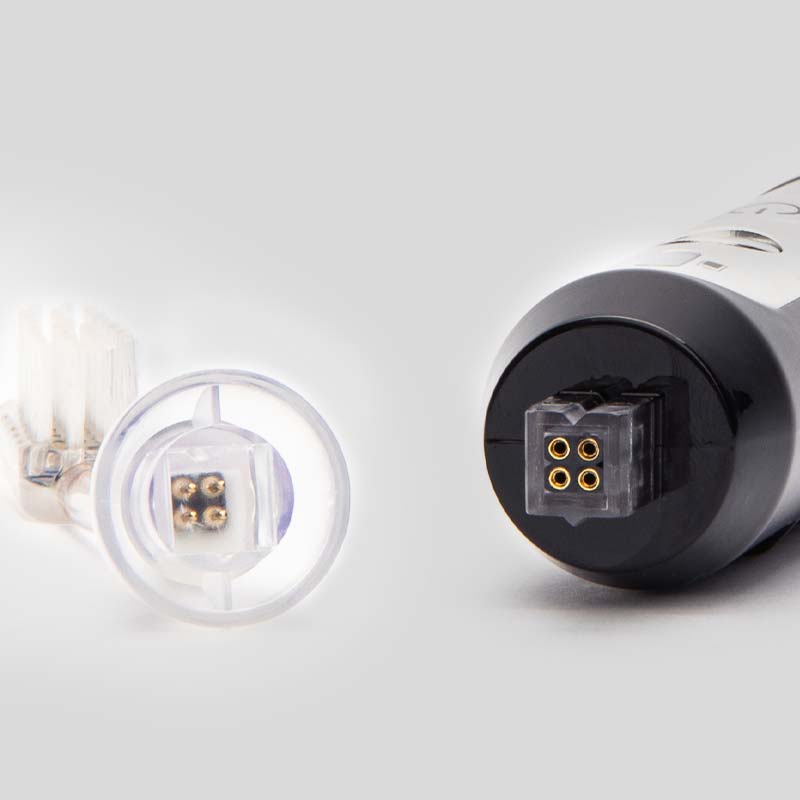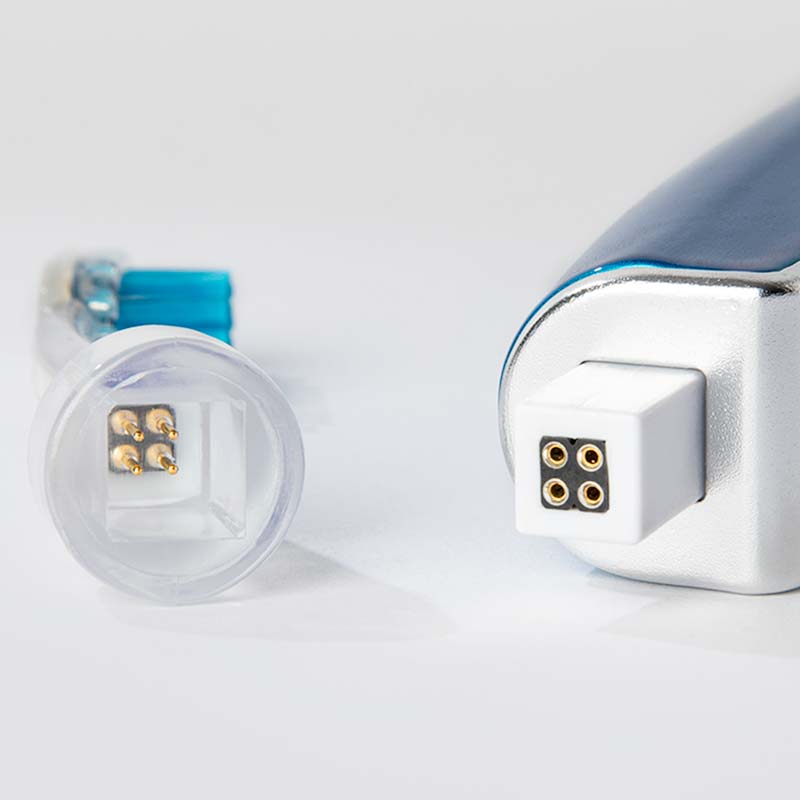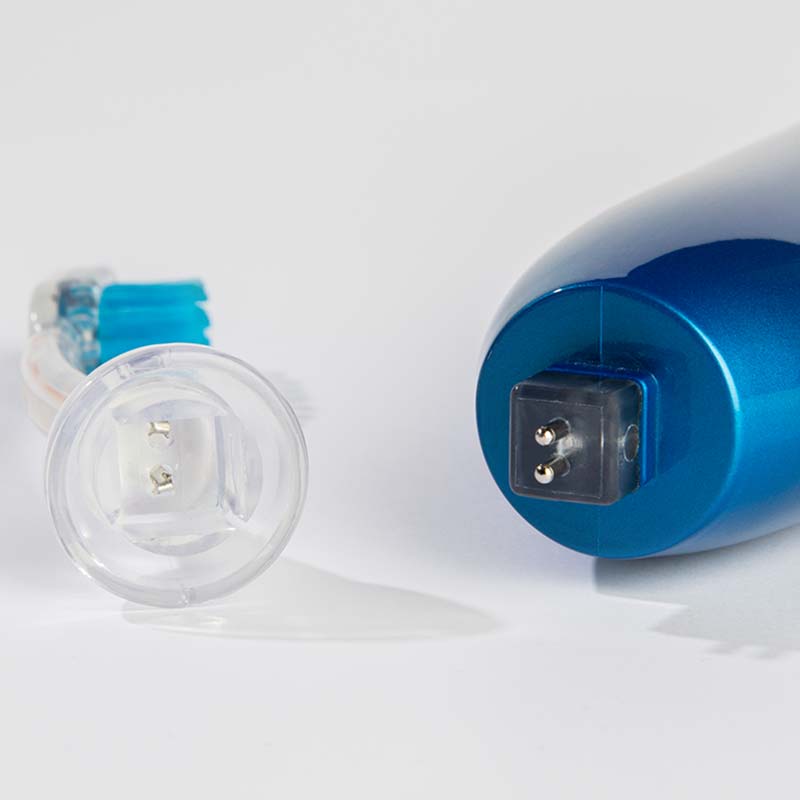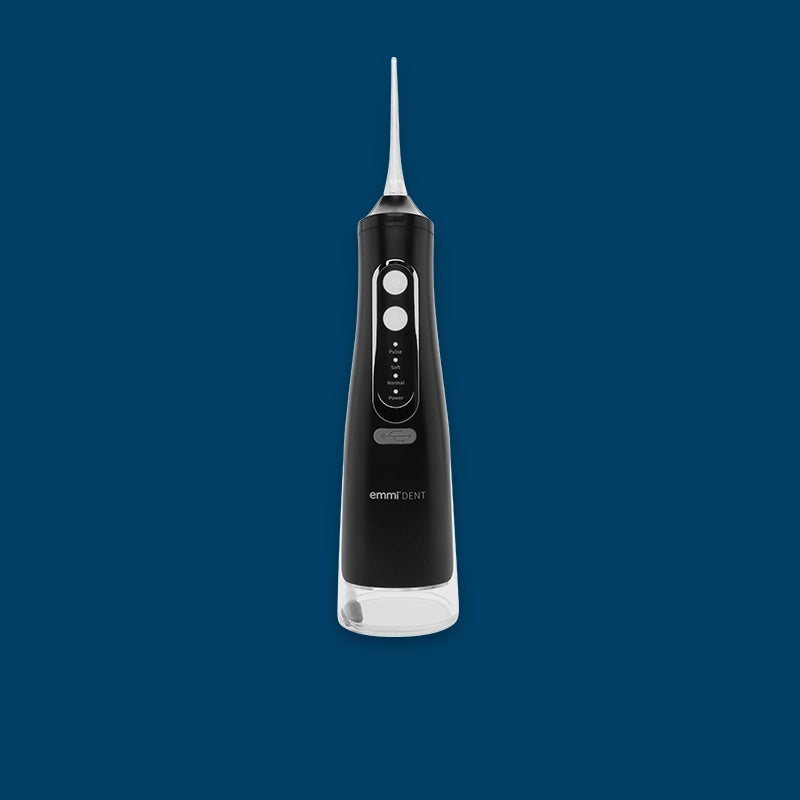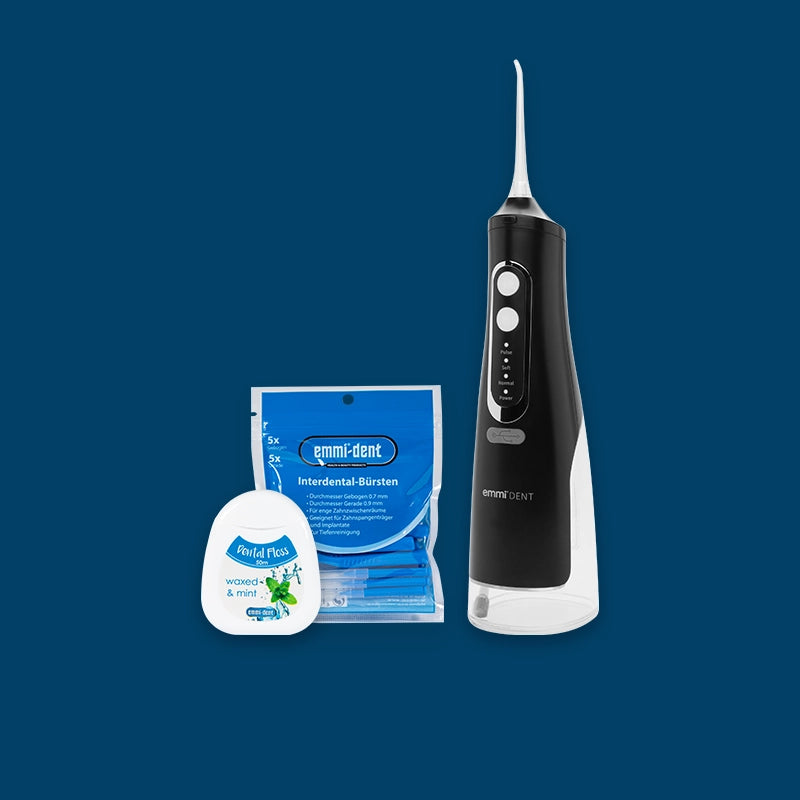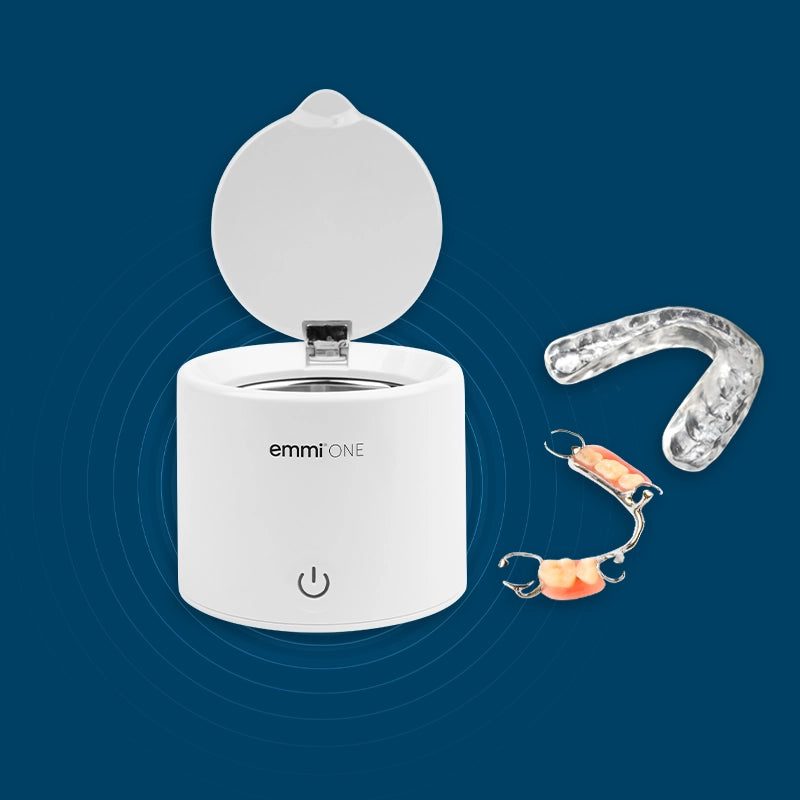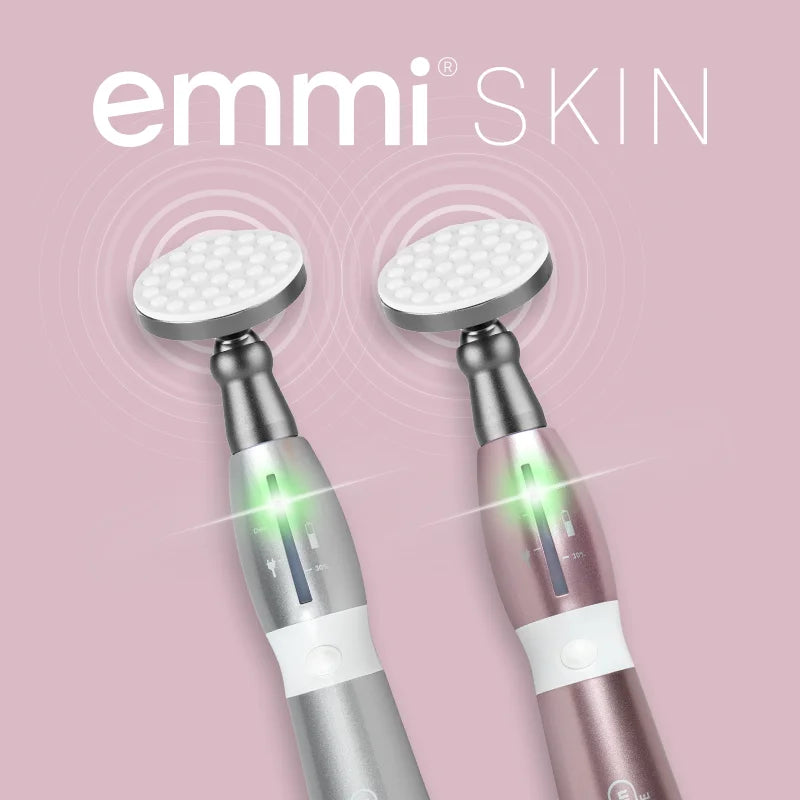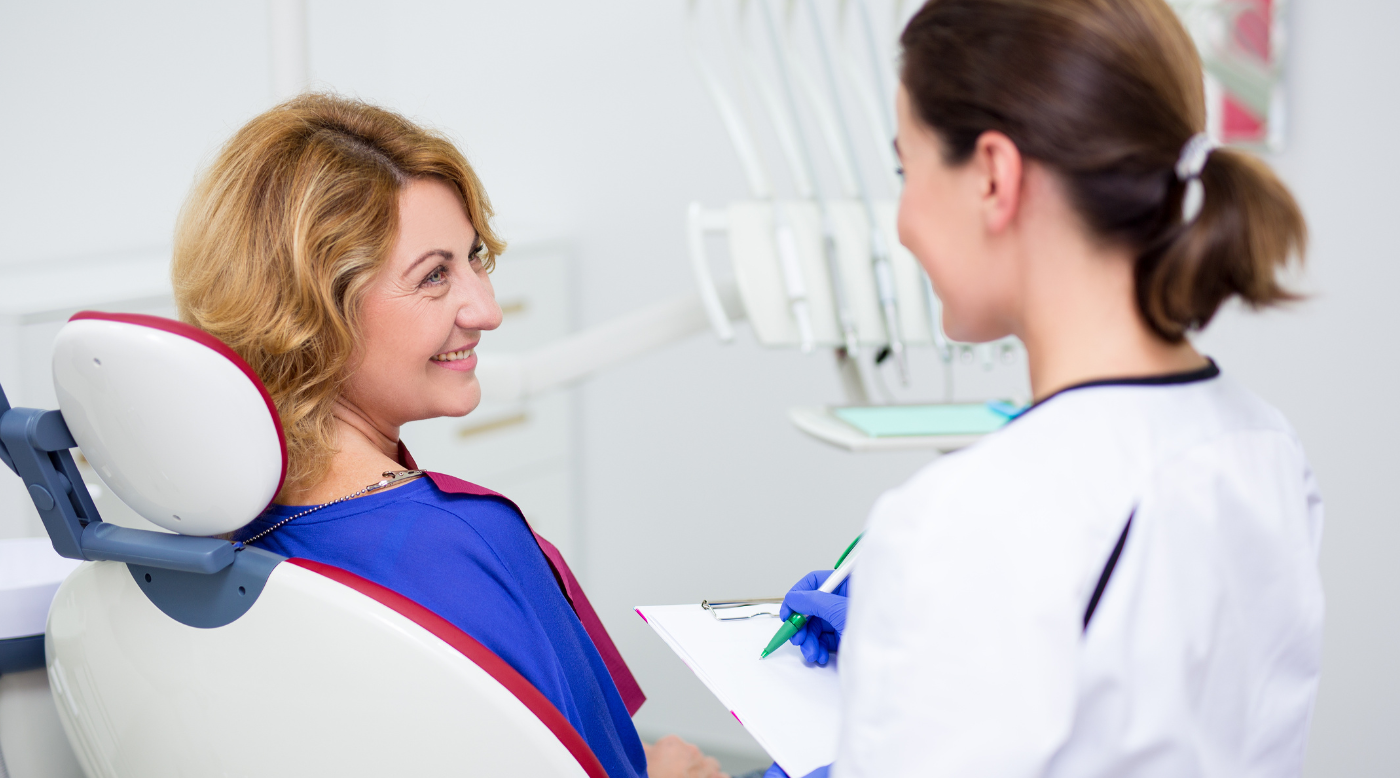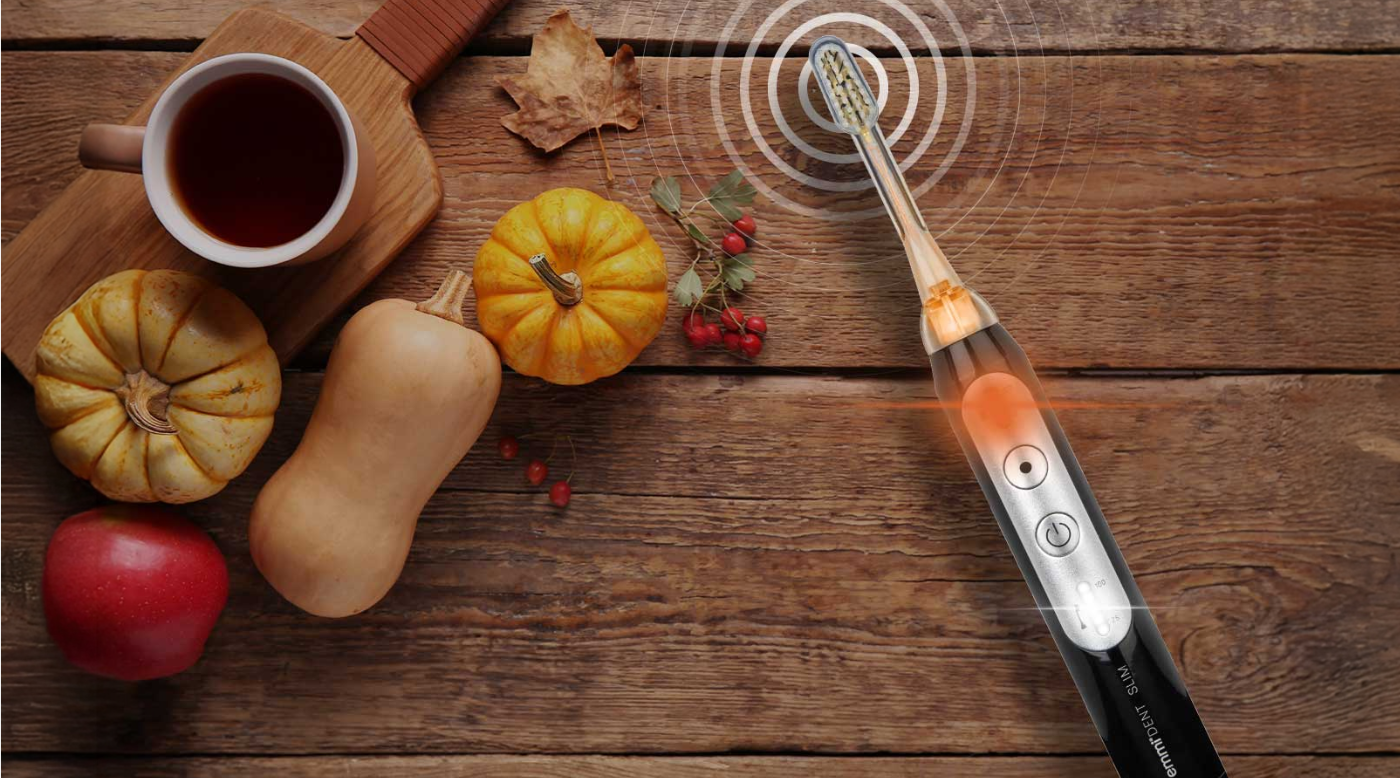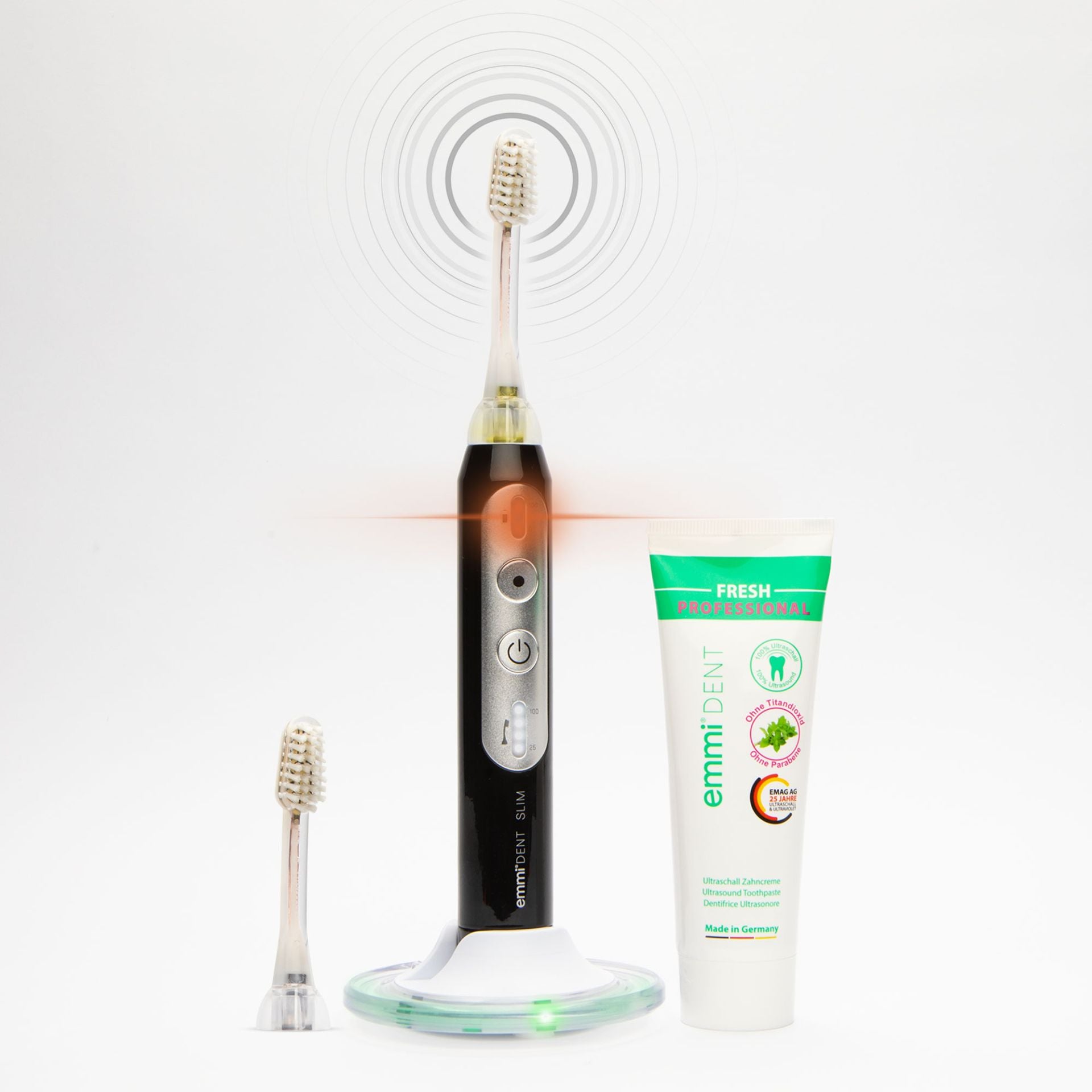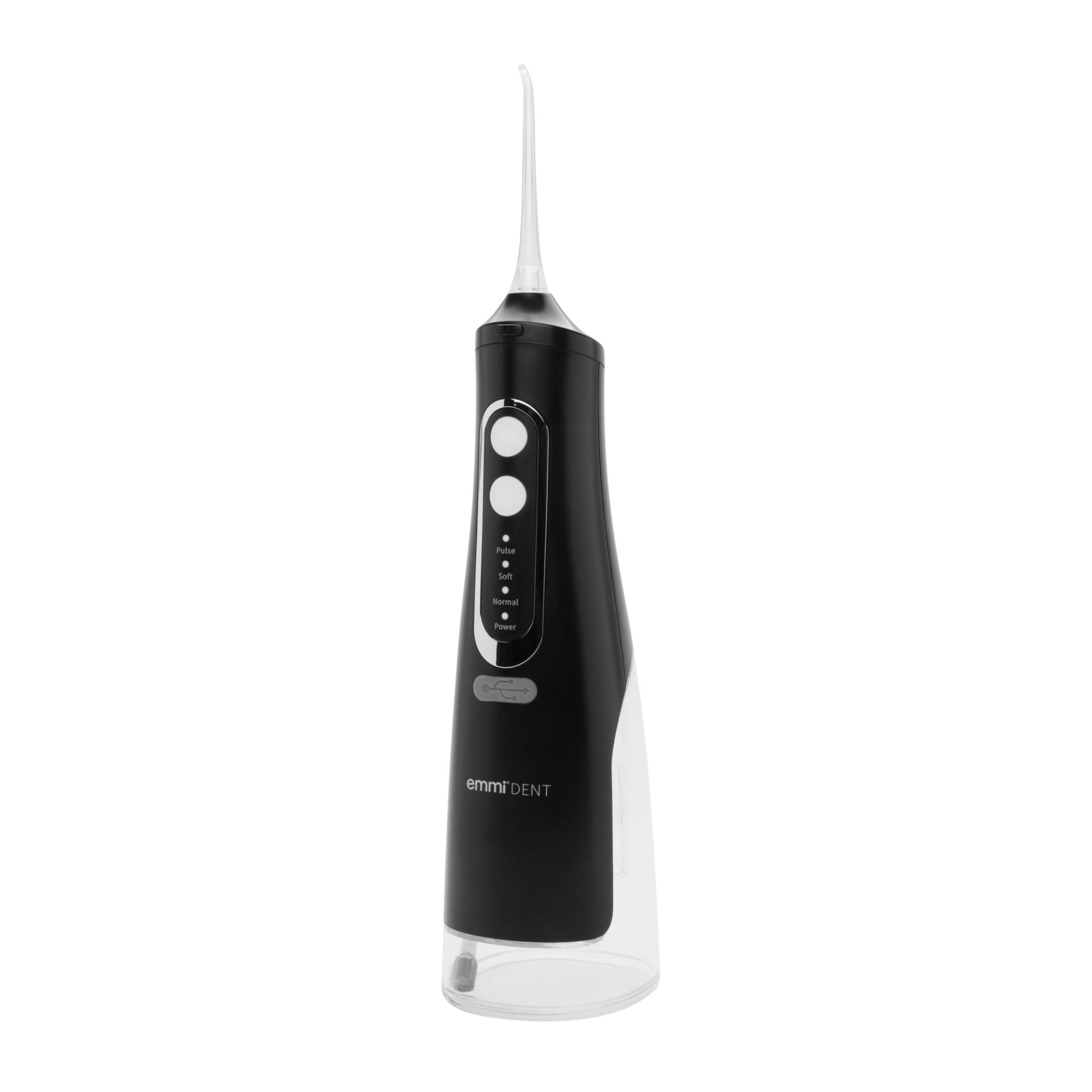Menopause is more than just a hormonal shift. It's a time of more conscious reflection, a new beginning, and self-care. While you may notice your sleep getting lighter, your skin becoming more sensitive, or your body reacting differently to stress and diet, one area often goes unnoticed: your oral health.
What many people don't realize: As estrogen levels drop , important bodily processes change that directly impact teeth and gums. Blood circulation slows, mucous membranes become drier, and saliva changes. All of this can lead to irritation, receding gums, or an increased risk of tooth decay.
Especially now, it's important to take loving care of yourself and your mouth. More attention, more mindfulness, and sometimes even a change in your care routine can make a big difference. In this article , we'll explain what you should pay particular attention to now, what care is appropriate, and how you can specifically strengthen your dental health.
If you actively invest in your dental health during this phase, you'll not only avoid typical discomforts but also boost your self-esteem. Good dental care during menopause not only protects you from inflammation or pain. It also gives you a sense of control, strength, and inner balance. And that's exactly what you deserve during this time.
Hormonal changes and their effects on your teeth
With the onset of menopause, many things change in your body. A key factor is the declining estrogen levels , which has far-reaching effects on your health, including your oral mucosa. You may have already noticed that your gums bleed more easily, become more sensitive, or even recede. Irritation and inflammation also occur more frequently during this phase.
A particularly sensitive topic during this time is the increased risk of periodontitis . This chronic inflammation of the periodontal ligament affects many women around menopause and, if left untreated, can lead to tooth loss. What many don't realize is that periodontitis is closely linked to hormonal fluctuations that weaken the mouth's natural protective mechanisms. The gums' defenses weaken, allowing bacteria to spread more easily.
What might surprise you: Estrogens also play a crucial role in bone density in the jaw. If their levels drop, it can compromise the stability of your teeth in the long term. Without targeted preventative measures, there's a risk of jawbone deterioration. This is a process that often begins unnoticed but can have far-reaching consequences.
That is precisely why it is so important to take conscious countermeasures now.
If your mouth suddenly becomes too dry
Many women experience a change during menopause that is often only associated with dental health at second glance: a dry mouth , medically also
It protects tooth enamel from acids , flushes away harmful bacteria, and ensures a balanced oral environment. When this natural protective layer is missing, it quickly becomes noticeable: the tongue and palate feel dry or rough , food tastes unfamiliar, and speaking can feel uncomfortable. At the same time, the risk of tooth decay, bad breath, and gum disease increases significantly.
Dry mouth is especially noticeable at night. Since saliva flow is already reduced during sleep , many people wake up with a tingling sensation or the need to drink water more frequently. A condition that is not only annoying but also harmful to your oral health in the long run.
The good news: You can take targeted countermeasures. From choosing your toothpaste carefully to drinking plenty of fluids to practicing gentle daily care habits, there are many ways to restore balance and freshness to your mouth.
Dental care during menopause: What should change
Maybe you haven't given your dental care routine a thought in a long time. Morning and night, always the same, always reliable. That's great. But right now, in this special phase of your life, it's worth taking a closer look.
Your gums often become more sensitive during menopause. What used to work without problems can suddenly cause irritation. Conventional scrubbing or excessive brushing can irritate and even damage the sensitive tissue. Now, careful, gentle dental care that protects rather than stresses is essential.
What's important? Toothbrushes with soft bristles , a well-tolerated, fluoride-containing toothpaste , and a conscious awareness of changes in your mouth. Less friction, more sensitivity , because this keeps your gums healthy and your tooth enamel intact.
Interdental care also deserves more attention now. Interdental brushes or dental floss should be an integral part of your evening routine. Especially during this phase of life, it's crucial to specifically remove bacterial buildup and maintain a balanced oral flora. The more attentive you are to your body, the better you can support it.
Why modern technology is particularly helpful now
You don't have to handle everything alone during this phase of life. Dental care has evolved, and modern technology can provide targeted relief and support precisely where your body needs more attention.
Our ultrasonic toothbrushes, specifically for sensitive gums, are far more than just an upgrade. Instead of using mechanical pressure, they utilize millions of microscopic bubbles created by gentle sound waves. These bubbles penetrate deep into the interdental spaces , loosening plaque and removing bacteria. All without scrubbing, without friction.
This technology is a valuable aid, especially if your gums are sensitive or if you're already beginning to see signs of receding gums. It cleans thoroughly but gently , protecting your mucous membranes and preventing further irritation. And best of all, you can rely on care that works without causing any discomfort.
This way , dental care during menopause does not become an additional challenge, but rather a real moment of well-being.
emmi-dent Slim: Gentle cleaning with a system
Our emmi-dent Slim ultrasonic toothbrush was developed precisely for situations like yours. For people who value thorough cleaning but also want gentle care. It's a real asset to your daily routine, especially during sensitive phases of life like menopause.
Cleaning is done entirely without rotating movements. This means no pressure on sensitive gums, no friction on exposed tooth necks, and no risk of micro-injuries. Instead, the ultrasound, combined with a specially developed toothpaste, works directly where bacteria grow, even in areas that are difficult to reach with conventional brushes.
What makes it particularly suitable for everyday use: Our emmi-dent Slim is pleasantly lightweight, virtually silent, and intuitive to use. Ideal for you if you want to start your day gently in the morning or consciously unwind in the evening.
5 tips for your new dental care routine
To really strengthen your dental health during menopause, these simple tips will help you in your daily life:
1. Drink mindfully and sufficiently. Sips of water throughout the day help combat dry mouth. Avoid caffeinated or highly sweetened drinks, which exacerbate the effect.
2. Choose your toothpaste carefully. Fluoride-containing toothpastes support remineralization without irritating the gums. Look for a few, natural ingredients.
3. Pay attention to the spaces between your teeth. Use dental floss or interdental brushes daily to remove hidden plaque and prevent inflammation.
4. Go ultrasonic. If you have sensitive teeth or gum problems, switching to an ultrasonic toothbrush is worth it. Your oral flora will thank you.
5. Go for regular checkups. Especially during this phase of life, a quick checkup with the dentist more often than once a year is worthwhile. It's better to check once too often than to miss the onset of periodontitis.

